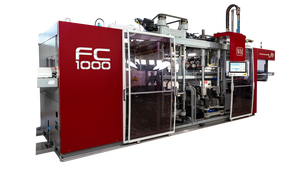The new materials portfolio is certified according to a mass-balance approach, allowing customers to reduce Scope 3 greenhouse-gas emissions.
November 22, 2022

A new range of bio-attributed acrylic materials from Arkema uses the mass-balance approach to help users tell their sustainability story by ensuring a verified level of non-fossil feedstock.
The company’s just-announced bio-attributed acrylic monomers and specialty acrylic additives and resins are mass-balance certified under the International Sustainability and Carbon Certification-PLUS framework, the company said. Arkema’s customers can use these materials to reduce Scope 3 greenhouse-gas emissions.
“The development of these bio-attributed acrylic materials is an important step on the sustainable development roadmap of Arkema and its Coating Solutions segment,” said Hervé Castres Saint Martin, Global Group President, Acrylic Monomers. “These innovative products deliver the same high quality and performance that our customers expect from us, while at the same time enabling them to lower their own carbon footprint.”
Arkema’s Carling and Genay plants in France have been newly certified for acrylic monomers and specialty acrylic additives, respectively, and its Zwickau plant in Germany for specialty acrylic resins. Production of Arkema’s certified bio-attributed acrylic materials will extend throughout Europe and other regions, the company added.
The mass-balance method of manufacture establishes a chain of custody that tracks the total amount of biomass content through a production system, ensuring the appropriate allocation of non-fossil content in finished goods based on auditable bookkeeping, the company explained.
“Engaging in both complementary approaches of mass balance and physical segregation accelerates our innovation in renewable materials for our customers and partners, to help them achieve their own sustainable development targets,” said Richard Jenkins, Senior Vice President, Arkema Coating Solutions. “In line with Arkema’s newly reinforced commitment to the Paris Agreement, we are working diligently to reduce our environmental footprint while developing innovative materials for a more sustainable world.”
About the Author(s)
You May Also Like


